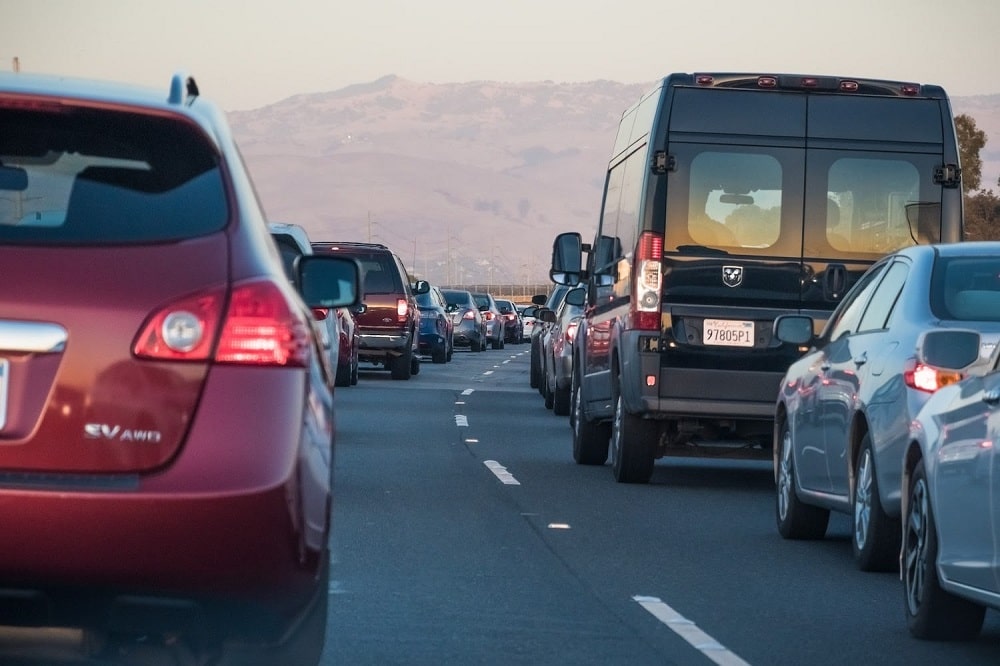 Credit: Sundry Photography/Shutterstock COVID-19 Disrupts Travel PlansThe COVID-19 pandemic of course has had a massive impact on vacation and travel plans, with the Centers for Disease Control still advising people to avoid unnecessary travel. Since no one is doing much travelling, the American Automobile Association also decided not to release its Memorial Day weekend travel forecast this year for the first time in 20 years.The Hankook Tire Gauge Index study reports that 88 percent of Americans cancelled or postponed plans because of COVID-19, and nearly one-in-two (47 percent) cancelled a vacation. However, while only 43 percent of Americans expect they will be able to take their next vacation this summer, a lot more are planning them in the future. Nearly two-thirds (62 percent) of those surveyed said they are hopeful or excited about an upcoming trip. People Planning More Road TripsCOVID-19 is also having another impact on how people think about travel and how they�ll vacation in the future. For example, if this survey is any indication, people are planning to take more road trips than take a flight to a destination farther away. Fifty-seven percent of those surveyed say they plan to take their next vacation by car, at least as of the survey which was conducted in April.According to the study, Americans are currently more than five times more comfortable traveling by car (62 percent) than via plane (11 percent). Americans also selected traveling by car as the top mode for transportation after the pandemic. Additionally, when it comes to road trips post-pandemic, people want company. A majority of Americans responded that they�d want to travel with a loved one in the passenger seat. Forty-percent of Americans said they�d want their spouse or significant other in the passenger seat, which is two times more than the second most popular pick, their child or children (18 percent). Only 11 percent said they would like to travel alone. COVID-19 Results in Decline in DrivingIf you compare the amount of people driving daily now, to prior to the pandemic, there has been a dramatic drop, for reasons we�ve listed. Prior to the onset of COVID-19, the survey found that about half (53 percent) of Americans were driving daily. Since the onset, only 1 in 5 are doing the same. It�s less to do with worry or anxiety over driving, and more to do with having fewer places to go. Restaurant closures (73 percent) and retail closures (69 percent) are more likely to impact Americans' driving habits than employment (55 percent) or education (51 percent).There are those, however, that are driving more. The survey discovered that 37 percent of motorists are driving as often or more since the pandemic hit. Perhaps they are essential workers or helping other family members who can�t get out. Others are just going on drives as a form escapism. Nearly two-thirds (64 percent) of Americans say that driving gives them peace of mind, and just as many (62 percent) consider it stress relief. "The COVID-19 pandemic has shifted priorities in various aspects of our lives, and the latest findings from our Gauge Index shows that Americans truly enjoy driving," said Peter Jung, SVP and COO, Hankook Tire America Corp. "The data reveals Americans have a renewed appreciation for road trips, car rides, and time spent with loved ones. When it's safe to be on the road regularly, Hankook looks forward to supporting drivers as they once again begin to journey along the open road." About the Hankook Tire Gauge IndexThe Hankook Tire Gauge Index is a survey of Americans' attitudes and opinions. The latest installment of the survey, conducted April 22-23, 2020, polled 1,094 randomly selected Americans age 18+ who have a valid U.S. driver�s license. |
|
|
|
